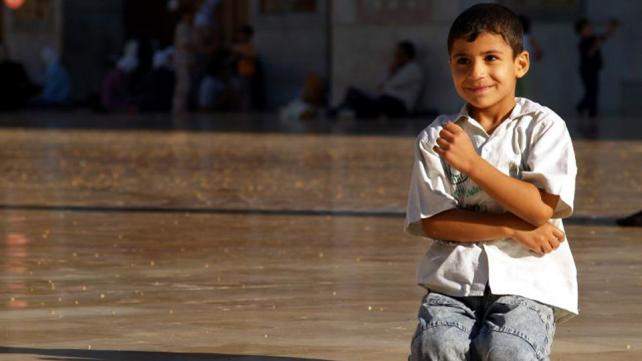10 Ways to Conquer Anti-Muslim Bullying

Bullying is a pervasive problem in the United States. According to the National Center for Education Statistics, nearly a third of all students aged 12 – 18 reported having been bullied at school in 2007, some almost daily.
Many kids who are bullied become targets because of differences in physical appearance, ranging from variations in dress, weight, skin color, and disability. As well, children with low self-esteem are more likely to become victims.
In late March 2011, a Muslim third-grader was found hanging unconscious in his school in Louisville, KY. It was not the first time Muhammad had been bullied and abused.
The same week a Muslim girl from Dreyfus School in New York was beaten up; thrown on the ground, had her headscarf pulled off, as she was repeatedly called a “terrorist,” “Muslim,” and a “bitch”. She was threatened to be stabbed with a knife unless she handed over her cell phone and all of her money. The victim suffered minor bruises and a cut lip. This was not the first time she was assaulted for being a Muslim.
While there are many excellent resources on and offline about how parents can handle bullying, there are some specific things you can do as the parent or loved one of a child being bullied. Here are some suggestions.
1. Recognize the signs that your child is being bullied
The majority of children who are being bullied do not tell their parents. This is why you need to be the one to notice the signs that your child may be experiencing this at school or even online. Some of these include:
- Cuts, bruises or other injuries that are not easily explained
- Torn clothing
- Damaged belongings
- Has few, if any, friends
- Frequently complains of stomachaches, headaches, and other physical problems
- Often has nightmares
- Expresses a more-than-normal refusal to go to school
- Expresses an outright fear of getting on the schoolbus, going to school, etc.
- Is depressed and seems to cry and be upset a lot
2. Get as much information as possible to confirm that your child is being bullied
That means meeting with your child’s teacher, checking out what they are doing online (and yes, that does mean monitoring their Face book and email, if you already don’t), as well as meeting with school counselors and principals if necessary.
3. If the problem is bullying, talk to your child in private
Depending on your child’s temperament, this may be on a quiet Sunday before the school week starts. For other kids, it may be during a trip to the park for a walk or to toss a Frisbee. Whenever you feel your child is most responsive to talking to you, choose that moment to bring up the issue. You can ask questions like:
- How are you doing in school?
- Do you like your teacher? Tell me about her
- How are the kids in class?
- Who would you say are your friends so far this year?
- Are there any kids you don’t like? If so, why?
- What do you like doing during recess?
Ideally, these can indirectly lead to the answers you are looking for. Or you may just ask directly, ‘is anyone hurting you at school? I noticed (name any of the signs of bullying that you have)’
4. Contact the school and work out a solution with the teacher and/or the principal
This is key to ending the bullying. If the teacher does not respond and allows the bullying to continue, meet with the school principal. Discuss the problem and ask if the school has an anti-bullying program (many schools today do).
5. Comfort your child with Dua and mercy
This is key to rebuilding your child’s self-esteem, which is usually damaged by bullies’ incessant abuse. Part of a parent’s job is to be a kind of cushion that absorbs the shocks of the outside world for their kids. Offer words of hope and comfort. Together, make Dua that Allah guide not only you and your child in how to handle the bullying, but to also guide the bully him or herself to stop their behavior. Remind your child that doing the right thing is hard, but Allah is with the steadfast, and better days are ahead.
6. Share stories of the Prophets
Many of Allah’s Prophets were bullied through name-calling, mockery, and worse. Share these stories from the Quran with your child as examples of how the best of human beings responded to what your son or daughter is experiencing now. Emphasize that throughout their ordeal, these role models did not stoop to the level of their abusers. Rather, they retained their integrity and put their trust in Allah.
7. Help them be proud to be Muslim
The Islamophobia of the adult world is also found on the nation’s schoolyards, as the two examples mentioned at the beginning of this article indicate. It is not uncommon to find Muslim children bullied if they have a Muslim name, wear Hijab, or sport various other visible symbols of their Islamic identity.
This is why Muslim parents, grandparents, aunts, uncles, and older siblings must offer environments where being Muslim is not an excuse to be mistreated. This can mean not only taking children to Muslim events ranging from fundraising dinners to playgroups, but weekend school, outings with other Muslim families, as well as Halaqas. Being with other Muslims in an Islamic environment builds strength and identity.
8. Offer to do a presentation about some aspect of Islam to your child’s class
This is an excellent way to not only present some basic Islamic information to make Islam more familiar to your child’s classmates. It will also be a way for kids to become more familiar with you, their classmate’s parent and best ally. Some good presentation topics could be Eid, Hajj, Islam and the environment, Islam and Jesus, and Islamic science.
9. Become more involved in your child’s classroom and school life in general
While time is tight for everyone, especially parents who hold down a full-time job, there are ways to remain involved through the school’s parent-teacher organization or even specific projects in your child’s classroom. For younger kids, you can go into the class to read a story; if your son or daughter plays a sport, volunteer to either coach or if you don’t have time for that at all, attend as many games as possible to show your presence and support; volunteer in the cafeteria at lunch time; become a library monitor; bake or buy goodies on Eid to give out to the class.
The point is to show not only your child that you’re involved in their life, but to also offer a Muslim presence in the school, as well as a silent warning to bullies that you are watching.
10. Get involved in local anti-bullying efforts
Muslims are required to enjoin the good and forbid what is wrong. Bullying is an excellent example of a cause to get more involved in that fulfills this requirement of our faith. Doing so will benefit countless students today and tomorrow. If your child’s school doesn’t already have an anti-bullying policy, consider approaching the administration through the Parent Teacher Organization (PTO) to work on one; offer to book speakers and presentations on the topic; support an organization working on this and offer your time, talent, and skills.


